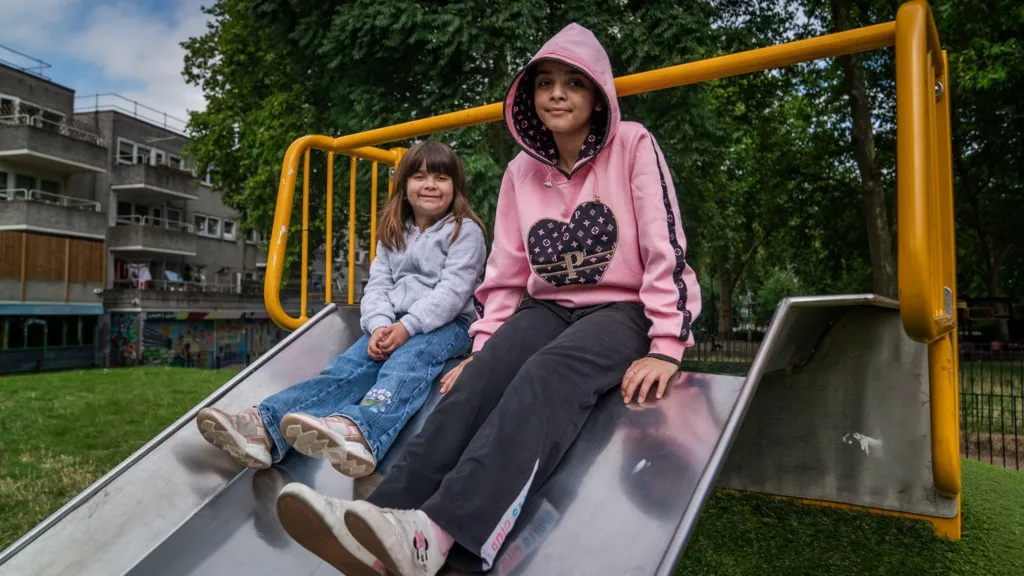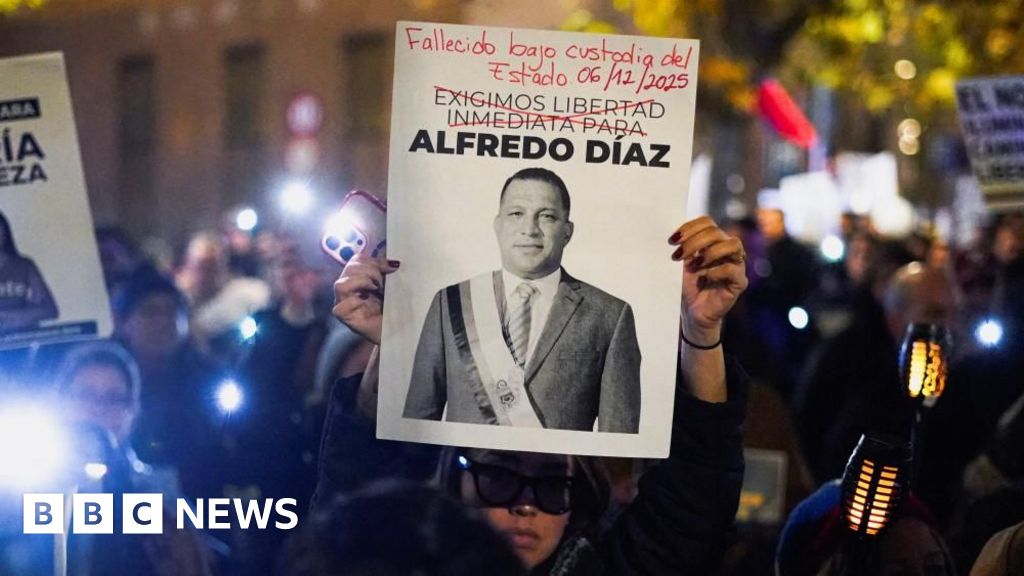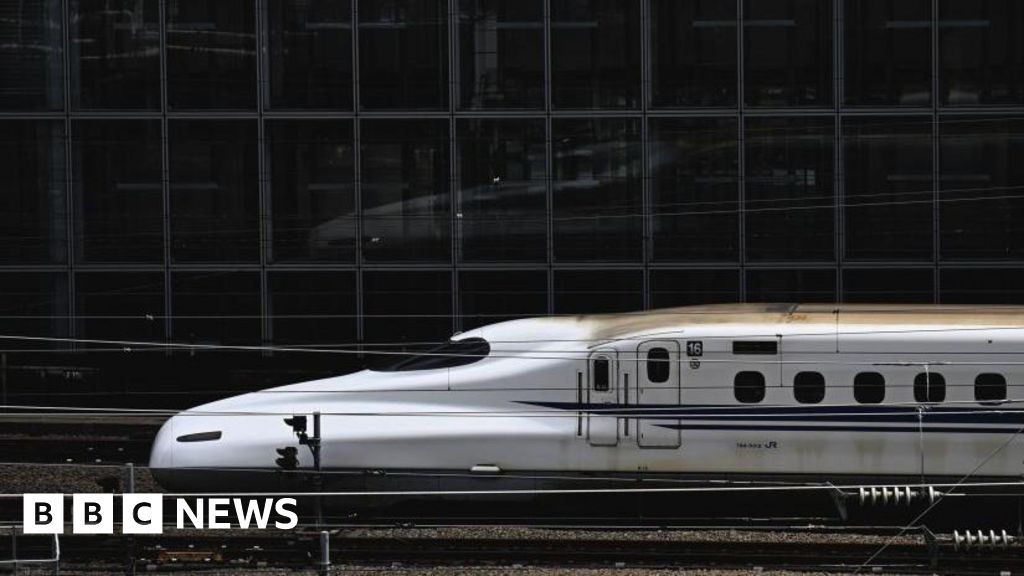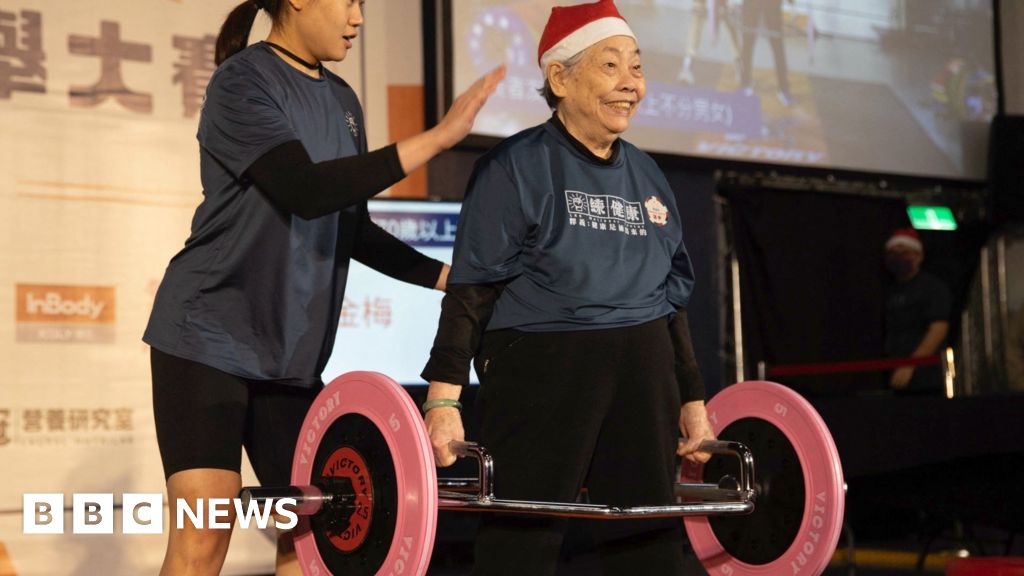Diplomatic correspondent
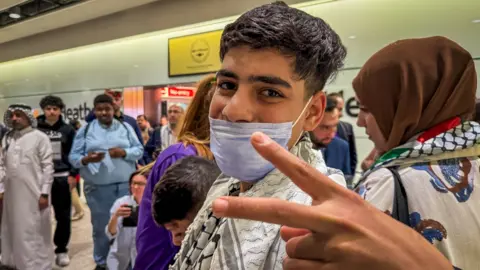 BBC
BBCMajd al-Shaghnobi can’t eat or speak or smile like he used to.
But with his injured mouth covered by a surgical mask, his eyes were beaming as he arrived at London’s Heathrow airport on a flight from Cairo, with his mother, brother and little sister.
“I’m happy to be in England and to get treatment,” the 15-year-old told me.
He was trying to get humanitarian aid in the Kuwaiti area of northern Gaza in February last year when an Israeli tank shell exploded nearby, shattering his jaw bone and injuring his leg.
“One of my friends helped me and took me to the hospital,” he says. “They thought I was dead. I had to move my hand to show them that I was alive.”
Doctors in Gaza saved his life and Majd spent months in hospital, breathing through a tracheostomy tube, before he was evacuated to Egypt in February this year – with Israel’s permission – for further medical treatment.
Now he’s in the UK for surgery at Great Ormond Street children’s hospital in London to restore the function of his face.
He is the first Gazan child to arrive in the UK for treatment for war injuries, almost two years into a conflict in which more than 50,000 children have reportedly been killed or injured, according to the UN children’s charity, Unicef.
His arrival follows months of work by a group of volunteer medical professionals who came together in November 2023 to set up Project Pure Hope, which helps injured and sick Gazan children get to the UK for treatment. It is funded by private donations.
“The UK is home to some of the best paediatric facilities in the world, yet while countries like the US, Belgium, Italy, Switzerland and many others have stepped up to help, the UK has yet to do the same,” Project Pure Hope says.
Majd’s arrival in the UK comes less than a week after Prime Minister Sir Keir Starmer promised to evacuate more badly injured children, although the government has released few details of the plan.
Majd’s medical team – all working for free – will include craniofacial, plastic and orthodontic surgeons, with hospital bills paid for by private donations.
“If we’re able to give him a face and a jaw which he can use then it won’t be completely normal, but hopefully he’ll be able to feed himself and speak, and his facial expressions will be better,” says lead surgeon Noor ul Owase Jeelani, a professor of Paediatric Neurosurgery at Great Ormond Street.
“Hopefully that’s going to make a big impact on how he lives and on his future.
“Our hope is that we will be able to help many more children like him in the coming months. It’s our collective moral responsibility.”
Doctors from the hospital have previously treated patients from Ukraine, and last year helped separate co-joined twins in Israel.
Professor Jeelani is disappointed that it has taken so long for the first child from Gaza to be treated for war injuries in the UK.
“As a doctor and as a human, I don’t quite understand why it’s taken us over 20 months to get to this stage,” he says.
Project Pure Hope has identified 30 critically injured children in Gaza who it hopes to help bring to the UK. It says the government’s announcement is “vital and long-overdue”, but time is of the essence.
“Every day of delay risks the lives and futures of children who deserve a chance to live, to recover and to rebuild a life,” said Omar Din, its co-founder.
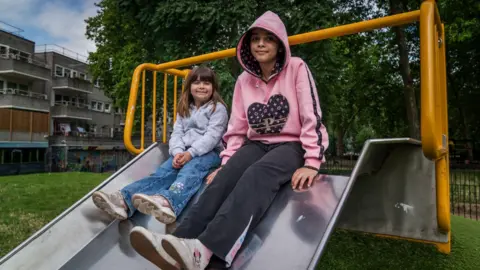
In April, the group of volunteers secured visas for two girls -13-year-old Rama and five-year-old Ghena – with life-long medical conditions to also have privately funded operations in the UK.
They were brought to London after being evacuated to Egypt from Gaza, where – with the destruction of the healthcare system there – they weren’t receiving the treatment they needed.
Since I met them in early May, Rama has put on weight and Ghena, who was deeply traumatised and withdrawn, is noticeably more playful.
Ghena has had laser surgery to relieve the pressure in her left eye, which she was at risk of losing. And Rama has had exploratory surgery for a serious bowel condition.
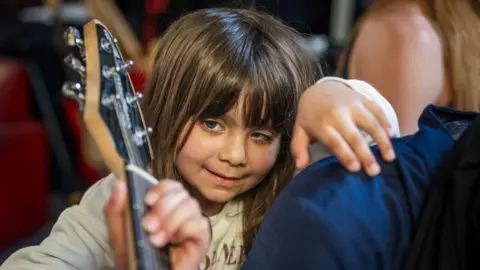
Both girls are doing well, their mothers say.
But they are sick with worry – finding it hard to eat and sleep – about family members left behind in Gaza, who are now struggling to feed themselves.
“It’s better than Gaza here,” Rama tells me. “There are no bombs and no fear.”
But friends message her from Gaza, telling her that they haven’t found bread for 10 days and she says her older brother is sleeping on the street after first his home, and then his tent, were bombed.
“They’re hungry. So I don’t want to eat either. I feel like I’m still there with them,” Rama said.
UN-backed experts said this week there was mounting evidence that widespread starvation, malnutrition and disease is driving a rise in hunger-related deaths among the 2.1 million Palestinians in Gaza.
Majd, who suffered life-changing injuries while out trying to get food for his family, is also worried about his two brothers still in Gaza.
“I’m scared that they’ll die or something will happen to them,” he says. “I just want them to be safe.”
